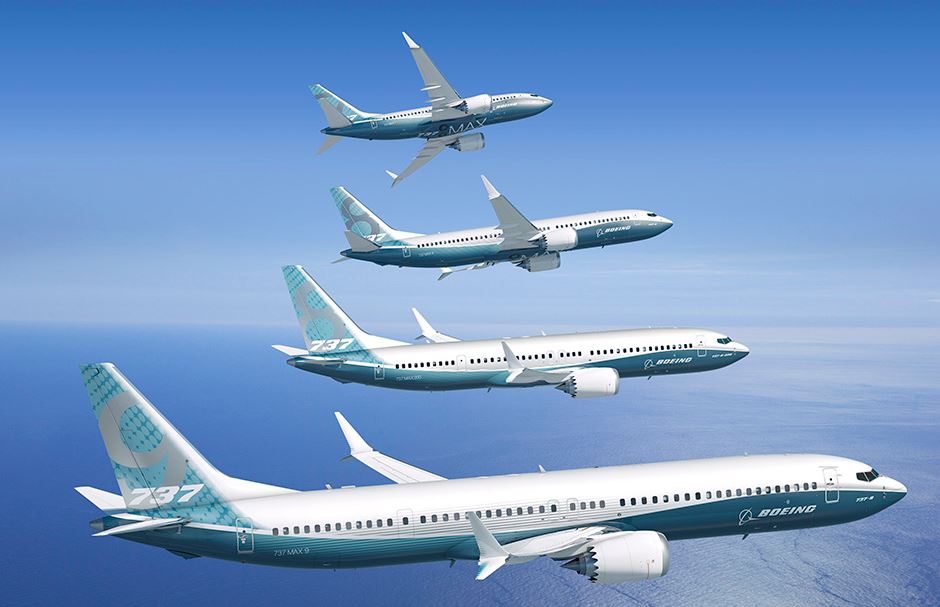
Suspending Boeing 737 Max may cripple Indian aviation eco-system
As if accusations against Indian vendors for being partly responsible for the flaws in the Boeing 737 MAX weren’t enough, they now have to write down losses from the aircraft’s temporary grounding.

As if accusations against Indian vendors for being partly responsible for the flaws in the Boeing 737 MAX weren’t enough, they now have to write down losses from the aircraft’s temporary grounding.
The world’s largest commercial aircraft manufacturer Boeing is perhaps facing the worst phase in its 103 years of existence. Not only has its showpiece, 737 MAX aircraft, crashed twice taking down 346 people with it, but also forced the organisation’s CEO, Dennis Muilenburg to quit.
The temporary suspension of 737 MAX production from January means several Indian vendors who were supplying components for the aircraft and software services companies will now take a major financial hit. There are fears that they may have to let go, several employees, as there are no firm indications when the aircraft’s production will commence again. However, Boeing has said it might resume as early as June, 2020.
According to various estimates, the loss in revenue could be as high as $500-750 million for Indian vendors. Boeing sources software and products from Indian vendors worth about $1 billion, up from about $500 million in 2015. It has over 160 vendors in India who supply parts and assemblies covering aerostructures, wire harness, composites, forgings, avionics mission systems and ground support equipment.
For software, Boeing relies on tech companies such as HCL and Cyient Ltd., according to several sources and media reports. HCL helps develop and test Max’s flight-display software while Cyient Ltd works on software for flight-test equipment.
According to earlier media reports from the US, both HCL and Cyient were accused by un-named engineers working for Boeing in the US that the aircraft maker outsourced work to these companies at far lower costs than what would have cost them if they had outsourced projects to American tech companies.
According to a Bloomberg report in June this year, which quoted engineers working for Boeing that the company was laying off experienced engineers and pressing suppliers to cut costs. The report said the aircraft maker and its subcontractors have relied on temporary workers making as little as $9. The report quoting these un-named engineers said that this could have compromised quality of the code being written for the 737 Max aircraft. Both the Indian software companies later denied any such quality issues.
Of late, Boeing has seen good orders from India coming its way. Indian low-cost carrier, Spicejet in January 2017 had placed orders for 100 737-Max 8 jets (each costing $117 million) worth $13 billion which represented Boeing’s largest order ever from an Indian airline. Spicejet’s total orders including these 100 aircraft run to 205 aeroplanes, according to the Boeing website.
Boeing has so far won orders worth $22 billion from Indian defence and commercial aircraft companies.
HDFC Securities in a note to the investors in November said that SpiceJet’s 2QFY20 results were weaker than expected (reported loss of ₹460 crore) due to the adverse impact from the grounding of the 737 MAX planes as well as seasonality. “Due to the grounding of MAX aircraft in March, 2019, 13 planes are incurring expenses. While SpiceJet is confident that Boeing will compensate them for losses and has provided ₹178 crore as aircraft/ supplemental lease rentals incurred in 2QFY20 as other income, the auditors have qualified their limited review report in this regard,” the analysts at HDFC said.
An analyst with an aviation company said that in recent times both Boeing and Airbus have been facing turbulence in their respective organisations, which could add to the woes of the airlines in India who are themselves not doing well.
According to data sourced from the Ministry of Civil Aviation, the operating loss of all domestic carriers in India is at about ₹6,846 (close to about $1 billion) during April-November, 2019 period which does not augur well for the sector. Hence, the government should take it upon itself to rewrite the policies that govern the airline sector and bring ATF under GST, the airline analyst said.


